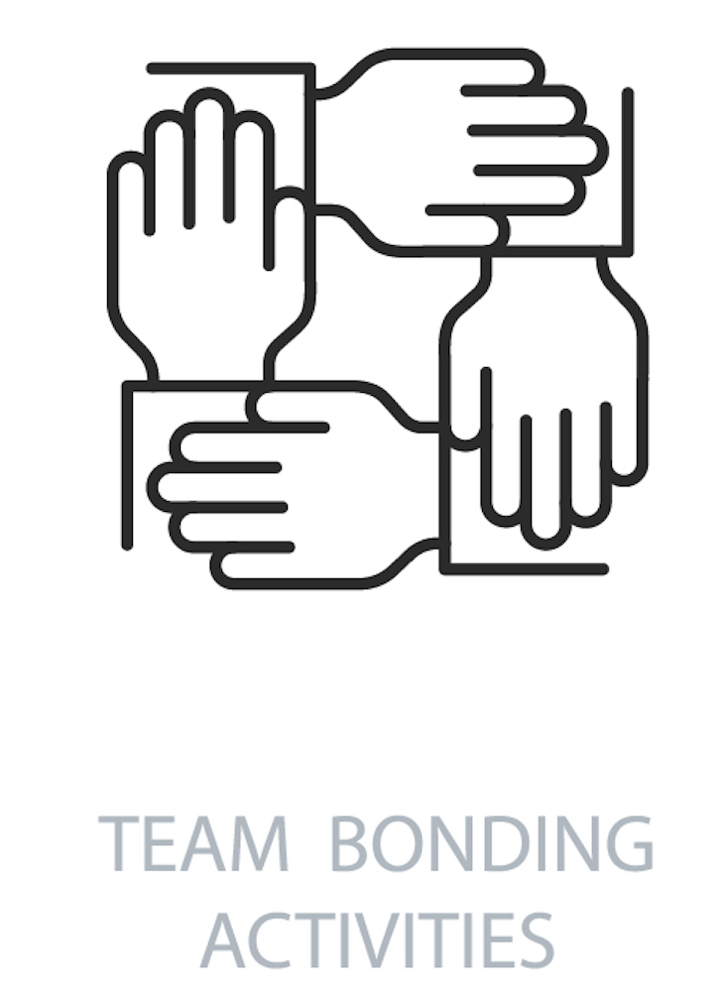Join Guardian Pest Control as a Service Technician
We are willing to provide training and help in obtaining all required licensing and certification. Looking for an individual who wants to learn a trade. Must be adaptable, personable, coach-able, and have a good work ethic.
As a local family business, we at Guardian Pest Control treat every client like they’re our only client, not like some of the bigger companies that treat people like a number. We value our employees, and the proof is in the pudding. Guardian has earned a reputation for excellence. We believe in providing all of our clients with exceptional pest control services, and all of employees the opportunity for an exceptional career.
Working in professional pest management is so much more than controlling pest problems. It's also building relationships with clients and educating them about how to reduce the pest problems in their homes or businesses. You don't need any prior experience - Guardian Pest Control has an 8 week comprehensive training program that incorporates both classroom and on-the-job learning to ensure you have all the knowledge necessary to perform the job well.
Technicians conduct inspections, correct pest control problems by applying product, baiting and monitoring, and communicate regularly with office personnel and the sales team to ensure top quality customer service. A high school diploma or G.E.D., good communication skills and a genuine desire to learn the pest control industry is all that is required.
Compensation:
- $24 per hour without experience
- First year earnings $52k to $64k
Work Schedule:
- Day shift
- Monday to Friday
- Overtime
- Rotating Saturdays
Benefits:
- 401(k) with matching
- Dental insurance
- Employee discount
- Health insurance
- Paid time off
- Professional development assistance
- Referral program
- Retirement plan
- Vision insurance
- Bonus opportunities
- Commission pay
- Tips
Guardian Pest Control Careers
Guardian Pest Control is hiring for Pest Control Technician Apprentice in East Providence, Rhode Island, United States
Working IndependentlyPhysical LaborProblem SolvingCommunicationOrganizationLearning New TechnologiesCustomer Service
USD 24 - 24 Hourly
Guardian Pest Control Video Gallery
7 Keys to Choosing the Right Employer
Choosing the right employer is a crucial decision that can impact your career trajectory, personal growth, and overall life satisfaction. While salary and job titles are important, they are just a small piece of the puzzle. Below are seven key factors to consider when evaluating potential employers.
1. Company Culture
One of the most important aspects to assess is the company culture. The work environment, values, and communication style play a significant role in your day-to-day experience. Do employees collaborate well? Is there an emphasis on work-life balance? Understanding whether a company's culture aligns with your values can be the difference between thriving in your role or burning out.
Tip: Speak to current employees or look for reviews on platforms like Glassdoor to gain insight into how the company operates.
2. Opportunities for Growth
Long-term career growth is essential when choosing an employer. Look for companies that invest in their employees by offering opportunities for professional development, mentorship, and advancement. Employers that prioritize internal promotions and training programs show that they care about their staff's progress.
Tip: Ask during interviews how often promotions are made from within and what support is offered for career development.
3. Leadership and Management
The quality of leadership can make or break your experience at a company. Strong leadership promotes a positive work environment, encourages innovation, and motivates employees. Conversely, poor management can lead to low morale, high turnover, and a lack of trust in the organization.
Tip: During interviews, ask questions about leadership style and how managers support their teams. If possible, meet with your potential direct supervisor to gauge their management approach.
4. Work-Life Balance
No matter how much you enjoy your job, balancing your personal life and career is vital to your overall well-being. A healthy work-life balance ensures you can remain productive without experiencing burnout. Check if the company offers flexible work schedules, remote work options, or other initiatives that show they value employee well-being.
Tip: Ask how the company handles overtime, vacation policies, and remote work flexibility to assess whether they prioritize a balance between work and personal time.
5. Job Security
Evaluating the financial stability and future prospects of a company is another important consideration. You want to ensure that the company is stable and growing. Joining a company that frequently downsizes or restructures could put you at risk of sudden job loss.
Tip: Research the company’s financial history, market position, and industry trends. Also, ask about turnover rates and the reasons behind recent employee departures.
6. Compensation and Benefits
While salary is often a primary focus, benefits such as health insurance, retirement plans, and paid leave are equally important. Consider the entire compensation package when evaluating an employer. A company offering excellent benefits and perks may be more attractive than one with a higher salary but no additional support for your health and financial future.
Tip: Don’t hesitate to ask for details about insurance, retirement plans, bonuses, and any other perks offered during the hiring process.
7. Company Reputation
The reputation of the company is a significant indicator of what you can expect in terms of job satisfaction and personal fulfillment. Companies with a good reputation are likely to have strong leadership, an ethical work environment, and a clear vision for the future. Joining a reputable company can also enhance your professional profile.
Tip: Check news reports, online reviews, and feedback from former employees to gauge how the company is perceived externally and internally.
Final Thoughts
Finding the right employer is more than just landing a job—it’s about building a fulfilling career. By focusing on these seven keys—company culture, growth opportunities, leadership, work-life balance, job security, compensation, and reputation—you can make a well-informed decision that supports your long-term goals and happiness. Take your time during the job search process, ask thoughtful questions, and trust your instincts. After all, the right fit will do more than just offer you a paycheck—it will provide you with a place to grow, thrive, and succeed.
What do our employees think of us? (Source: Indeed)
for you.
Guardian will train you on the job while simultaneously supporting your state by state credentialing process. Standards are high but reasonable for anyone interested in a professional environment that nurtures growth in this unique field.
Great pay, great hours, welcoming and sincere management, Guardian Pest Control is the real deal.
They’ve kept their word on everything mentioned to me in the interviews (honest & trustworthy).
To the management, CEO’s and owners you are not just a number. They take the time to learn about your wants and needs in work and in life.
If you’re looking for a company that cares about their employees and you are willing to put in the effort, work hard and learn than Guardian Pest Control is the company to work for.
Pros: Consistent Growth, Great Pay and Benefits, Positive Work Environment
Pros: Excellent start pay and benefits.
Cons: None
Pros: On the job training, respectful peers, promotes from within, competitive wages, 401k
Cons: N/a
Far too many things to list on how much knowledge I have gained in just 8 weeks.
Management is awesome, very responsive, they’re caring and extremely supportive, genuinely good people.
At Guardian the culture is the best I’ve seen thus far, each employee and management are extremely inviting, friendly, caring and helpful.
The most enjoyable part of being apart of the Guardian team is knowing everyone is always will to give a helping hand, everyone is a just a simple phone call away.
Pros: Great benefits, very friendly, helpful, being truly part of great team.
Cons: I have not found a con yet.
Pros: Great family owned business who treat you like family.
Cons: Demanding but extremely rewarding.
Pros: Work truck, independence, fast days.
Cons: Long days sometimes although rare, they are hiring to correct that.
Pros: Great benefits, learning a trade/skill, fun and adventurous.
Cons: This job is great once you get used to it being a "dirty job".
From the moment you start working at Guardian Pest Control, it's clear that the company values its employees and wants them to feel comfortable and supported. The management team is incredibly approachable and always willing to listen to feedback or concerns. They truly care about their employees, and this is reflected in the positive work environment that they have created.
One of the things that makes Guardian Pest Control such a great place to work is the sense of community among employees. There is a real team mentality at the company, and everyone is encouraged to work together to achieve common goals. This creates a supportive and collaborative atmosphere where employees feel valued and appreciated.
I still remember something Eric (our company CEO) had told me during the interview process, “we are not in the pest business, we are in the people business.” Something that stuck out to me about that statement is that not only do they mean that about the customers, they apply that to the employees as well, which makes it a really healthy working environment.
Overall, Guardian Pest Control is a fantastic company with a strong focus on company culture and employee satisfaction. If you're looking for a welcoming and supportive work environment, this is definitely a company to consider.
Pros: Good benefits, company vehicle, great company environment, always learning something new, team work!
Cons: Work/life balance.
Was this review helpful?
Pros: Great benefits and makes you feel like part of a real team.
Cons: Have to be ready to learn and apply yourself to be the best you can be.
Pros: Pay, benefits, work environment.
The atmosphere is noticed from day 1, the comraderie between all employees(technicians, sales, management)
They take their training and helping their employees learn and succeed very seriously
Very organized and on top of things company, which was a breathe of fresh air from the last company I worked at being very unprepared and frankly uncaring
If you're looking to change pest.control companies, look no further!
Or if you're interested in a new field of work that requires learning tons of new things and being able to put that knowledge to use every day, Guardian is the way to go.
Pros: Good pay, benefits, great coworkers, organization.
Cons: Typically longer work days than 8 hrs.
Pros: Consistent motivation, tons of room to grow, endless opportunities.
Cons: Pest problems can be challenging but challenges keep me motivated!
Pros: Consistent growth, compensation, benefits.
Guardian will train you on the job while simultaneously supporting your state by state credentialing process. Standards are high but reasonable for anyone interested in a professional environment that nurtures growth in this unique field.
Great pay, great hours, welcoming and sincere management, Guardian Pest Control is the real deal.
Pros: Professional environment, honest company, and great pay!
Cons: None.
Pros: Teamwork, great pay and benefits.
Cons: Sometimes long hours during the busy season but the compensation makes up for it.
here is the etxt with hard returns
to test it if respects or not
Exceptional Employee Benefits














